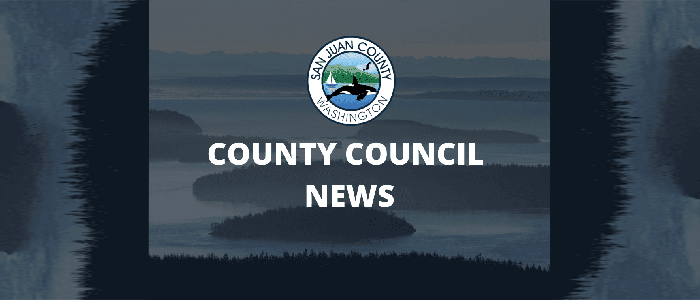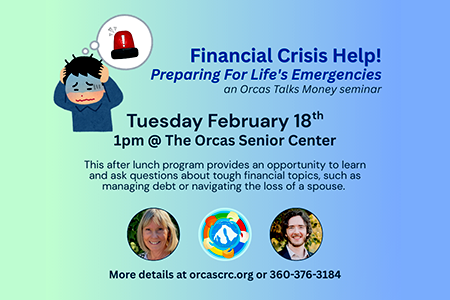— from Joe Cohen —

A current debate is the question: What are we seeking to accomplish (if and when we reopen our community) and Why? The County Council has indicated (in advance of any direction from the Governor) that transient rental occupancies (hotels, Air BnB, VRBO) will be prohibited through the end of May. The council has also signaled that it may consider a closure for the entire summer season.
Clearly, most would agree that maintaining a safe & healthy environment (no or minimized virus) has been and should remain a top priority. If this is true — then what are the set of options to accomplish this result — and what are the potential ‘costs’ in those options?
- Option #1: Shut down the rental / hospitality sector for the duration of the summer. This restrains non islanders from coming to visit (nowhere to stay or eat) and ensures a result that most (perhaps) businesses will be out of business. Additionally, some business / property owners may lose their assets to bank foreclosures. No income for an extended time period results in inability to pay bills and make mortgage payments.
- The financials costs are borne largely by the businesses and proprietors. No business opportunity (open) implies no income and a potential loss of the business enterprise. (Note: The government is not going to bail out the businesses that fail, or the property owners that lose their assets). There is also a financial cost to the County in that sales and lodging tax revenues evaporate — and this impacts many aspects of our collective lives (the county may be forced to lay off employees and/or reduce services).
- Option #2: Allow the hospitality sector to demonstrate its creative capacity by suggesting ways in which it may operate in this new environment — with a focus on both employee and guest safety measures. Restaurants ensure adequate spacing (say 6 – 8 feet between tables); temperature testing at entry; sanitation strictures (only guests actually touch their plates); cleanliness procedures; and more. Most such business are proactively seeking and devising processes and procedures on HOW they will operate in a covid 19 world. Hotels can provide simplified (no direct contact) check in; no in room cleaning during stay; private access to rooms; enhances cleaning and sterilization measures, and more. The hospitality sector wants to participate as a good citizen in the community. Guests and employees will be made as safe as is possible.
- The costs under Option #2 are unknown. We don’t know with certainty the level of imported cases of COVID and we further don’t know how well our community will manage any outbreak. What we do know is that (to date) our self distancing and other measures have kept both the number and spread of cases in SJC under manageable control. We don’t know if our small community will be overwhelmed by an outbreak of cases, but we certainly know substantially more about protecting our community than we did just six weeks ago (mid March).
- Each of us makes daily choices as to ‘how much risk’ we are willing to take. We have learned to manage our individual risk-taking in terms of distancing, protective face masks and many other strictures. My bias is to allow for a gradual opening of our business community while judiciously monitoring both the business enterprises (are they acting in a safe and prudent manner) and the health of the population. Sending signals that we are going to be ’shut down’ for the summer is dangerous.
We are a liberal and intelligent community (on Orcas and in SJC). We are reasoned and balanced on most issues. The debate about keeping the hospitality industry under wraps throughout the summer needs to hear voices of the community at large. I invite that discussion.
**If you are reading theOrcasonian for free, thank your fellow islanders. If you would like to support theOrcasonian CLICK HERE to set your modestly-priced, voluntary subscription. Otherwise, no worries; we’re happy to share with you.**








We have done a great job so far minimizing cases of the virus.
I greatly sympathize with what you are saying. Gradually opening businesses such as construction and restaurants
with appropriate safety measures is a good thing. However, bringing mainland people here via the ferry system now is risky. If things blow up as a result we’re back to square one. I think the measured approach with the slowly moving the dial as far as opening up and monitoring progress is most prudent course.
It will be instructive to see what happens in Georgia after it’s
opening last Friday. We’ll see in another week or so.
When things do start to open inns, bed and breakfasts, and resorts
should be allowed to open as a first wave. These are primarily owned by island residents which provides income. Vacation rentals last since there is less control over how occupants are handled and cleaning of premises before the next occupants arrive. The majority of vacation rentals have out of county ownership and therefore the income generated goes out of the county and is spent elsewhere.
Gregory,you make an important distinction between hospitality units where the owner/operator is on site to police cleaning,etc…and the absentee owner who rents via internet. with no supervision of incoming guests..their health,numbers of persons etc.and then does not personally clean and supervise sanitation of the rental unit.
An important distinction. We
Thanks, Joe. I offer some general perspectives based on a month of operating an “essential business”.
First, 90% of our customers have learned how to shop responsibly. Island Market gets great credit for educating us all about ways to shop. In contrast, someone who visited Costco reported it was like a different world – few masks and casual attention to “social distancing”.
Second, most Orcas businesses still operating have posted policies and made changes which limit risk. To succeed, a business must reassure its customers and its workers that it takes their safety seriously. One way to do so is with a detailed C-19 Policy that fits that business.
Third, the County’s broad police powers would allow it to require that anyone doing business or hosting public events here must develop and post a C-19 policy.
Dr. Faucci warns C-19 will be with us for a long time. We all have a stake in this. We on Orcas have done a great job so far. I know we can figure this out!
Hi Doug…Island Market has been doing a pretty good job of teaching us how to live under social distancing. As a senior, I appreciate the effort. The only suggestion that I might have is to require your construction workers to wear masks without exception.
Food for thought in this debate:
WA State DOH data says 36% of people hospitalized for CoViD have been under 60 years old. Hospitals stays bankrupt people.
Among working people, grandparents help raise children. Younger adults in the family do elder care. Families watch each other’s kids. Kids go to day camp. Isolation goes out the window when we go back to work.
People are most contagious right before they show symptoms, We won’t detect the weekend visitor who rubs her nose, touches a doorknob and gets fever at home on Monday. Even with contact tracing we will see 2 generations of infection before we catch the outbreak.At Ro=3, that is 12 infections per asymptomatic tourist.
Soon we will understand transmission and how to work safely. In the meantime is risking a death in the family to keep a job a fair ask? Leaving people no choice but to work, get sick and possibly go bankrupt anyway is unwise in terms of social stability.
Paul – I am not affiliated in any way with Island Market. As a fellow business owner, however, I admire the job they have done and the way it has helped us all understand how to protect against c-19!
“The majority of vacation rentals have out of county ownership.” I’d love to see some support for that statement.
Perspective (Part 1)
WE ARE NOT IN THE SAME BOAT …
I heard that we are all in the same boat, but it’s not like that. We are in the same storm, but not in the same boat. Your ship could be shipwrecked and mine might not be. Or vice versa.
For some, quarantine is optimal. A moment of reflection, of re-connection, easy in flip flops, with a cocktail or coffee. For others, this is a desperate financial & family crisis.
For some that live alone they’re facing endless loneliness. While for others it is peace, rest & time with their mother, father, sons & daughters.
With the $600 weekly increase in unemployment some are bringing in more money to their households than they were working. Others are working more hours for less money due to pay cuts or loss in sales.
Some families of 4 just received $3400 from the stimulus while other families of 4 saw $0.
Perspective (Part 2)
WE ARE NOT IN THE SAME BOAT …
Some were concerned about getting a certain candy for Easter while others were concerned if there would be enough bread, milk and eggs for the weekend.
Some want to go back to work because they don’t qualify for unemployment and are running out of money. Others want to kill those who break the quarantine.
Some are home spending 2-3 hours/day helping their child with online schooling while others are spending 2-3 hours/day to educate their children on top of a 10-12 hour workday.
Some have experienced the near death of the virus, some have already lost someone from it and some are not sure if their loved ones are going to make it. Others don’t believe this is a big deal.
Some have faith in God and expect miracles during this 2020. Others say the worst is yet to come.
Perspective (Part 3)
WE ARE NOT IN THE SAME BOAT …So, friends, we are not in the same boat. We are going through a time when our perceptions and needs are completely different.
Each of us will emerge, in our own way, from this storm. It is very important to see beyond what is seen at first glance. Not just looking, actually seeing.
We are all on different ships during this storm experiencing a very different journey.
Realize that and be kind.
Unknown author
“We are in the same storm, but not in the same boat.”
I love this sentence and your entire post, Ed Andrews.
Peg,
You’ll find this information on the Orcas Island Vacation Rental Working Group’s website–
under- Data,
under- San Juan County Presentations,
under- July 2019 Community Conversation,
under, Ownership of VRPs by location of owner, Local impact of vacation rentals in San Juan County. Joe Symons, PhD, urban geography,
Scroll down and you will see the chart that displays this information.
Note: This graph cannot be generated based on the old data in the Vacation Rental Permit spreadsheet available at the SJC GIS open data portal. Why? Because that spreadsheet does not contain even the name of the island, much less the address of the owner.
As is, it is only by combining the Vacation Rental Permit spreadsheet with several other SJC databases that this correlation (using county data) can be obtained.
Perhaps after this pandemic has wound down SJC will finish updating the outdated information, and will make this public.
https://www.vacationrentalsorcas.org/
Peg. Let’s call it 51% +1… the plus one being the new vacation rental permit that was approved last week (see last week’s Sounder). It’s owned by a corporation out of B’ham.
I’m not sure why the county approved this one when they said they would not process any new vacation rental permits during the Stay Home order.
Michael — the permit process takes several months and maybe that one was already in the pipeline, and the county had cashed the $1000 check….
“We’ve done a good job so far minimizing cases of the virus”. An obvious outcome, we sent everyone home. Let’s see what happens when we try to open up. Nobel-prize winner Prof. Michael Levitt characterizes this quarantine strategy as the mistake of a lifetime: “There is no doubt. . the damage done by lockdown will exceed any savings of lives by a huge factor. . .another foul-upon the part of baby boomers. . .we’ve caused the problems of global warming and now we’ve left your generation with a real mess in order to save a relatively small number of very old people”.
Anyone who is at risk can stay home, the rest can wear masks, wash hands, and respect social distancing. Elderly lives can be saved thus, without destroying the livelihoods of the island workers who depend on a vibrant economy.